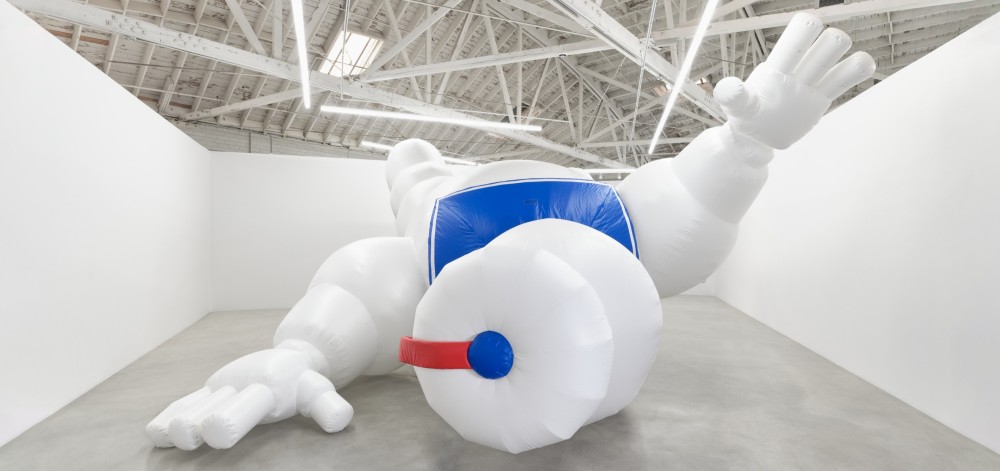
Divya Mehra: The End of You
Night Gallery is pleased to announce The End of You, an exhibition of new works by Divya Mehra. This is the artist’s second solo exhibition with the gallery and follows The funny things You do (2021) and her participation in Blue State (2018).
“This one guy, he says to me, ‘You know what the problem is in the world nowadays?’ I said, ‘Is it a group of people?’” — Norm Macdonald
What’s so funny about colonialism? The joke of colonialism is that it’s the end of someone. Structurally, it’s a collision of traditions and practices and modes of behavior that erodes the illusion of cultural homogeneity. But the joke doesn’t start there. Before the violent acquisition of land and lives begets the appropriation of culture, there is incongruity.
In other words, the joke is predicated on a disconnect between expectations and reality, or on the clash between two elements. From this perspective, comedy is embedded in the DNA of colonialism. What’s more incongruous than a group of oblivious white men claiming authority over an entire society they neither outnumber nor understand? The act embodies another principle of comedy: buffoonery—the tradition of the court jester mimicking the king for laughs. Yet in that tradition, the king’s ridicule is meant as a release for his subjects, called Relief Theory in the study of humor.
Colonizers play the king but become the buffoon, so the joke is on them. Or so it should be. But this dynamic is an occasion for a new beginning, one in which the clownish colonizer asserts his sovereignty by excluding the colonized from social subjectivity to the point of invisibility. In humor, this is called Superiority Theory.
My invisibility as a diasporic subject, internalized across generations, is someone else’s visibility —not only the white colonizers who tore through my grandparents’ country, but the people who are still there, who were raised with a homeland that has become alien to me even as I fail to fit into this one. The joke on me is that I’m caught between two worlds. The effects of colonization still ripple through oceans and into modern capitalist society, in the “ethnic” section of the grocery store. Invisibility is my status but also my refuge. I become visible in relation to others, in my difference, but it is not the visibility of a full person. Invisibility allows me to see what the ruling class refuses to; I can see the end coming. The end of me, the end of you.
The ruling class persists in upholding an illusion of equality by invisibilizing systemic and individual racism. Like any fantasy, it’s tenuous; it depends on everyone’s participation. When a diasporic subject draws attention to the illusion, it may seem like no one notices, but there’s power in policed invisibility, and in erasure. It leaves an unsettling trace, like a crack in the pavement that the puffed-up monolith of the oppressor, convinced of its infallibility, doesn’t notice. But the audience sees it and waits for the monolith to fall flat on its face. Or on a bunch of old white guys in a comedy club. That’s called slapstick.
—Natalie Haddad